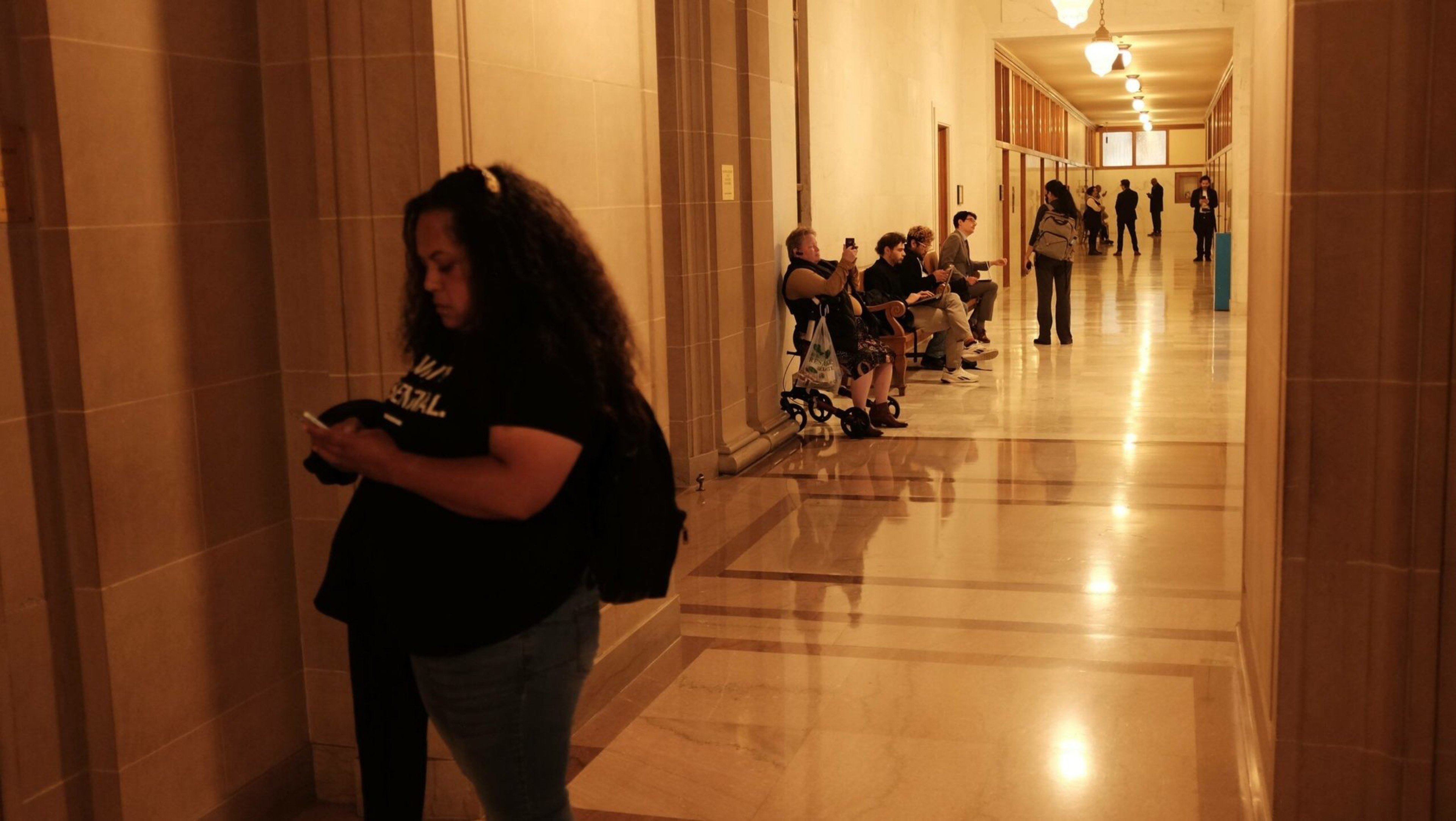Just before midnight Thursday, San Francisco lawmakers agreed on a budget deal that added back funding for city services prioritized by the Board of Supervisors while leaving Mayor London Breed’s public safety and economic priorities intact.
“We have a lot of work ahead of us, but this budget sets us on the right path,” Mayor London Breed said in a statement. “It will drive our economic recovery and revitalize Downtown. It will confront the City’s fentanyl crisis, provide support for those struggling with homelessness, and create opportunities for all San Franciscans to thrive.”
A marathon meeting of the supervisors’ Budget and Appropriations Committee, which first convened at 10 a.m. Wednesday, produced $75 million in adjustments to Breed’s proposed $29.2 billion budget for the next two years. Breed’s budget includes $14.6 billion in spending for each of the next two fiscal years.
The committee recessed multiple times throughout Wednesday as activists and social service providers posted in conference rooms and circulated the halls, lobbying for funds to be included or restored in the citywide budget.
GET THE INSIDE SCOOP: Power Play is The Standard’s insider email newsletter covering City Hall and politics. Sign up here (opens in new tab).

“You have turned this budget, because of your advocacy, [and] your passion that you bring to the table and to this room, you have turned this budget into a people’s budget,” said Supervisor Connie Chan, who chairs the budget committee, shortly after midnight.
Some of Breed’s more controversial proposed cuts were largely restored, including planned cuts to programs serving low-income residents of Single Room Occupancy buildings, the Ethics Commission, the Department of Early Childhood and programs supporting homeless transitional-age youth.
The last two of those, which are funded by voter-approved taxes dubbed “Baby C” and “Big C,” respectively, were saved by reallocating accrued interest on revenue from those taxes, which had been locked up in litigation for two years.
Breed wanted to divert revenue from those taxes to fund more short-term shelter beds, extend tax relief for small businesses and to incentivize businesses to move back Downtown. A proposed waiver of the “Baby C” tax on office rents for subleases was quashed.
Breed’s main priorities—including more public safety funding, including the hiring of 220 more officers over two years, coordinated action against open-air drug- dealing and more safety “ambassadors” to reduce street crimes—also emerged unscathed.
Supervisors also approved $4 million to fund a new city office to oversee reparations for Black San Franciscans. Separate from the budget, a proposed $50 million appropriation for that same office was deferred by the committee earlier on Wednesday.

Shortly before 10:30 p.m. Wednesday, Chan reported that an initial agreement had been reached, pending technical adjustments. The final update was delivered at 11:58 p.m.
“After a long day of recessing, here we are,” Chan said as the committee, along with Supervisors Myrna Melgar and Joel Engardio, voted to recommend the amended budget to the full board.
Chan described the budget deal as “a production, not just by one person but a village” of city officials and community stakeholders, noting Supervisor Hillary Ronen’s outsized role in negotiations.
“We were able to close a $780 million deficit over two years without major interruption of services to poor San Franciscans,” Ronen told The Standard. “I haven’t felt this great about a budget outcome in a long time.”
The full Board of Supervisors is expected to hold its first vote on the amended budget July 18, and Breed must sign the final budget by Aug. 1.
Correction: This story has been updated to note the status of a proposed $50 million appropriation to fund an office to oversee reparations for Black San Franciscans.
